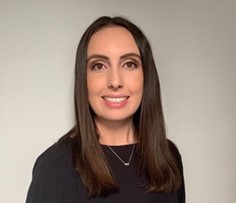My blog focuses on Financial Literacy/Money. Like politics and religion, personal finance can be and often is a controversial topic as it touches all of us. Some people do better with money than others and there are reasons for that. The following contributed post is entitled, Why Do So Many People Struggle With Money? The Hidden Traps Explained.
* * *

Have you ever wondered why so many people struggle with money? Why is it, for instance, that more than half of people living in the US are doing so paycheck-to-paycheck, without being able to build any savings?
It’s a deep question. But part of it comes down to hidden traps. People simply don’t understand money enough to manage it effectively.
Fortunately, this post is here to help. It explores the real reasons for money struggles and how they emerge. Here’s what you need to know:
No Savings
The first trap is the issue of savings. These are necessary when unexpected expenses arise, but many people believe they can live without them, only to discover later that they can’t.
Poor saving skills are often what leads to debt spirals getting out of control. Cash runs out but bills need to be paid, so people take out credit to cover the difference. Interest rates mount and then individuals become dependent on debt. Eventually, it becomes a rolling theme, costing more every month.
According to the CEO of National Debt Relief, Alex Kleyner, mastering credit management is essential. Debt can prevent people from achieving their financial goals, he says, and even experiencing a sense of freedom in their lives.
Behavioral Issues
Another common problem is behavioral issues. Many people get into trouble simply because they approach money in the wrong way.
One problem is the so-called “present bias.” This is the idea that what happens now matters infinitely more than what happens in the future. It’s a tendency to view short-term rewards as being superior to long-term gains, reducing the propensity to save.
Another serious issue is the idea of “mental accounting.” Here, some people compartmentalize their spending, telling themselves that it’s okay to put all their money into entertainment because it’s fun.
Then there’s just outright procrastination. Many people dislike dealing with finances and don’t want to interact with them.
Social Media Influence
The fear of missing out (FOMO) is another massive reason people struggle with money. Many individuals believe they have to keep up with the lifestyles of ultra-rich and successful individuals, including buying nice cars and jetting off all over the world.
Of course, the reality is that for most productive people, going away is something that happens once or twice a year. It’s not a weekly event.
Comparison culture on social media also plays a role. People want to play the status game, and that often involves spending vast quantities of money on conspicuous consumption, like trips to Flannels.
Economic System Issues

Of course, it’s not just a matter of personal responsibility. The economic system as a whole creates issues for people.
The cost of living, for instance, can rise dramatically in some cities, often over the course of a few months. Added demand can put pressure on housing stock and local resources, putting prices up.
Stagnant wages are also a factor. While wealthy people keep adding to their cash hoards, ordinary citizens are struggling to get by. Globalization, immigration, and unfriendly labor practices are all issues.
Limited Financial Literacy
Then there’s the problem of limited financial literacy. Many people simply don’t understand money and how it works.
To be fair, the number of people who really know their finances well is limited. That’s because it is a tricky topic, especially when you start including things like the stock market.
However, many individuals weren’t taught simple money management and accounting skills in school, setting them up for a life of challenges. For example, in today’s culture, we see a massive reliance on credit. People stick payments on their cards, shifting payments off into the future, neglecting to consider rates and fees. These practices can then lead to more debt that becomes hard to escape.
Hardly any children get an education in investing either. Then, when they become adults, they wind up making poor financial choices because they don’t understand how the underlying market works.
Then there’s the absence of goal-setting, also critical for financial planning. Overspending is much easier when all that matters is right now.
Emotional Spending
Finally, many people spend money for emotional reasons, not practical ones. Shoppers might use retail therapy to splurge on items they don’t really need to cope with stress, boredom, or other uncomfortable emotions they might be experiencing.
Financial avoidance is another common phenomenon. Here, individuals deliberately avoid looking at their bank accounts because they worry about what they might show. Overdue bills cause them stress, so forgetting about their overdraft often seems like the best short-term tactic.













